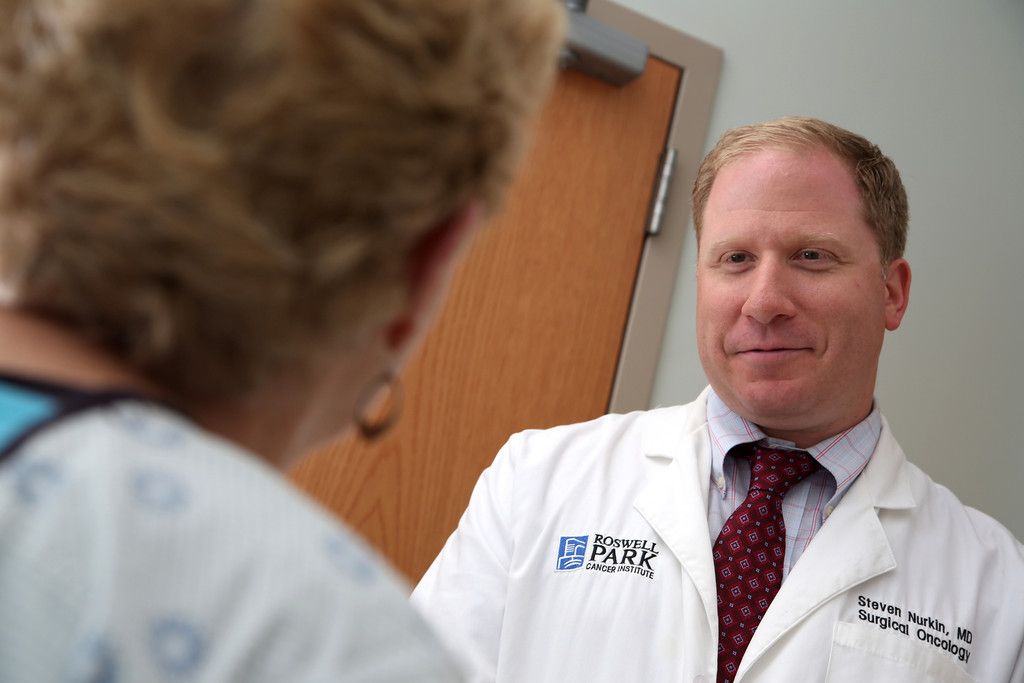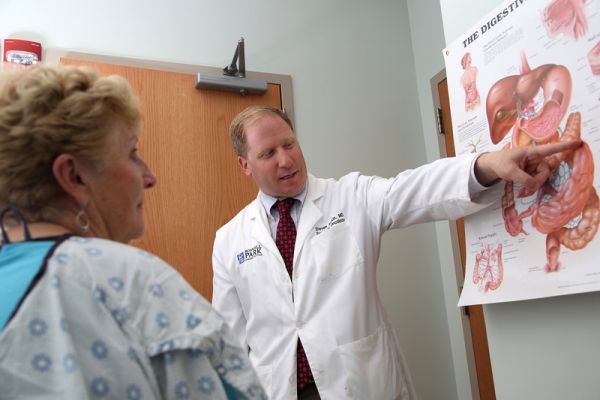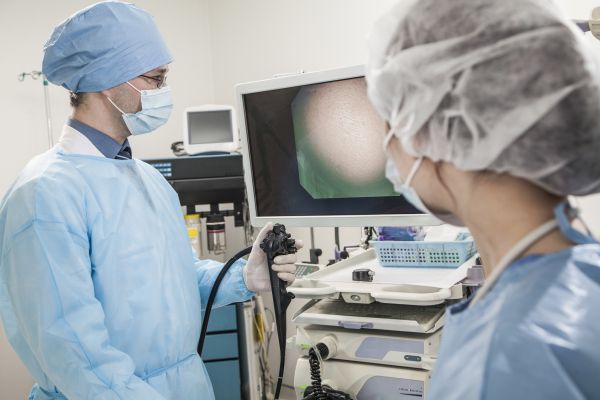If you need to have surgery for colorectal cancer, your surgeon may create an ostomy so your stool won’t have to pass through the affected area of your intestines. This will allow your intestines to heal and/or enable you to receive chemotherapy or radiation treatment.
In many patients, the ostomy is temporary and can be reversed after the intestines have healed. If you are eligible for an ostomy reversal, once your healing is complete, you will be scheduled for surgery and your intestines will be reconnected so you can pass stool normally. You will probably be in the hospital for three or four days. This surgery is less complicated than the original surgery.
After the ostomy-reversal surgery, you will have an open wound on your abdomen where the stoma was. The wound may require packing and wound care for a few weeks after surgery. You will be taught how to do the wound care, and/or arrangements may be made for a home care nurse to assist you.
Never miss another Cancer Talk blog!
Sign up to receive our monthly Cancer Talk e-newsletter.
Kegel Exercises: Key to Your Recovery
Kegel exercises strengthen your pelvic floor muscles, which are on the bottom of your abdomen. They include sphincter muscles that help you hold your urine and stool until you can get the bathroom. These muscles aren’t used much immediately after ostomy surgery, so you’ll need to strengthen them. Doing Kegel exercises will help you regain your ability to hold your stool.
How to Perform Kegel Exercises
First, identify your pelvic floor muscles and learn how to contract and relax them. To identify your pelvic floor muscles, try to stop urinating in midstream. If you succeed, you're using the right muscles!
Exercise 1
1. Empty your bladder. Then relax.
2. Tighten the pelvic floor muscles and hold for 10 seconds, then relax them completely for 10 seconds. You should feel a pulling sensation around your rectum.
3. Repeat 10-20 times, tightening and relaxing for each set. Repeat the set five times per day.
Exercise 2
Tighten the pelvic floor muscles for one second and then relax for one second. Repeat as many times — and as often — as you can.
Details: What Else You Need to Know
- Not all stomas can be reversed. If you no longer have an anus or your surgeon has determined your stoma to be permanent, your stoma will not be reversed. (Only fecal ostomies (ones that pass stool) can be reversed. If you are a bladder cancer patient whose bladder was removed and you have a urostomy, your ostomy is permanent and cannot be reversed.)
- There are risks with any surgery. After your surgeon has discussed these with you, you may decide not to go ahead with ostomy-reversal surgery. Some people adjust to life with an ostomy and don’t mind having one. Other people want the reversal surgery as soon as possible.
- Besides the general risks associated with surgery and general anesthesia, there are additional risks that come with the reversal surgery itself. Your surgeon and nurse will explain the signs and symptoms of complications and let you know when you should call your doctor. Side effects of this surgery can include:
- Anastomotic leak: Any time the intestine is sewn or stitched, it can develop a leak. The place where your intestine is reconnected and sewn back together is called the anastomosis. The anastomosis can leak stool into your abdomen, which could lead to an infection.
- Obstruction: The area around the anastomosis can develop scar tissue and cause a stricture — a section of the intestine that is narrower than it should be. The stricture is not flexible and can cause a blockage or obstruction. If this happens, you will have abdominal pain and difficulty passing stool.
- Incontinence: Nerve and muscle damage can occur during surgery, which may lead to fecal incontinence. Your surgeon will schedule an exam or test before reversal surgery to be sure that after surgery you will be able to hold your stool normally until you can get to the bathroom.
If you have questions about your ostomy or whether you might be a candidate for ostomy reversal, ask your Roswell Park physician or other provider.



